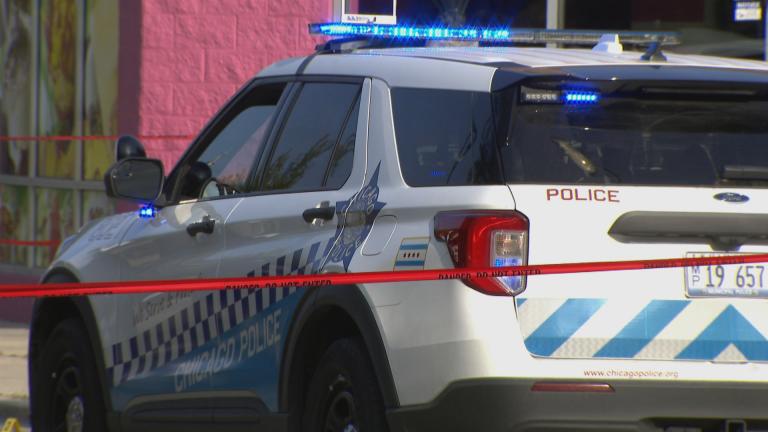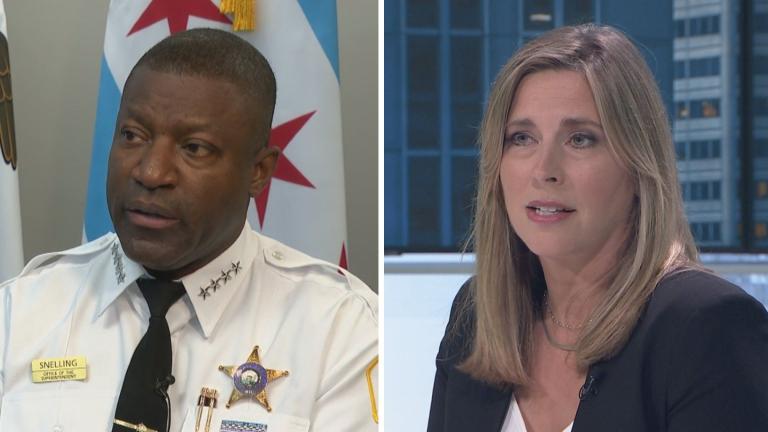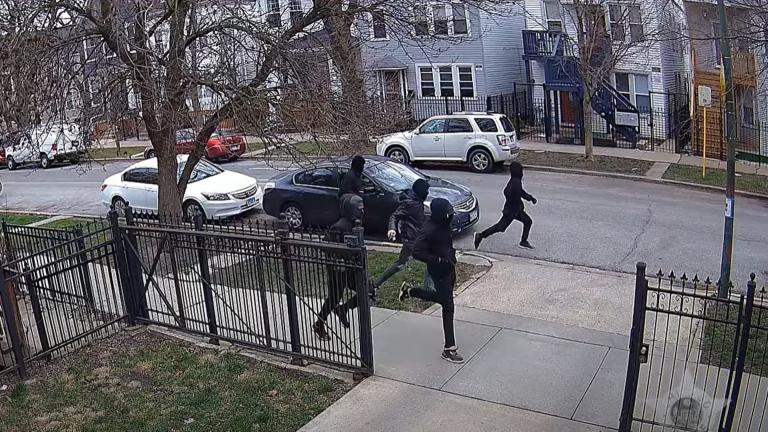Since the 2014 fatal shooting of Laquan McDonald, the city has spent tens of millions of dollars to reform the police accountability system. But according to figures released by the Chicago Police Board, the majority of police officers the superintendent recommended be fired this year have ended up keeping their jobs.
The Chicago Police Board is the nine-member civilian oversight board that has the final say on police disciplinary procedures. COPA, the Civilian Office of Police Accountability, investigates every police-involved shooting. It can issue a recommendation that a police officer improperly used force and that the officer should be fired. Police Superintendent Eddie Johnson then issues his own recommendation. (In most cases, he has agreed with COPA.) The recommendation then moves to the police board, which adjudicates through a trial-like process of hearings and testimony.
At its budget hearing Monday at City Council, the police board revealed that of the 12 cases brought before it this year in which the superintendent recommended firing, it upheld only four of those cases. In another four, the board found the officer guilty of some charges, but recommended a suspension instead of firing. In another four cases, the board fully overruled the police superintendent and ruled not guilty. So the board agreed fully with the superintendent’s recommendations to fire a police officer only a third of the time this year.
According to Chicago Police Board statistics, from 2014-2018, the board agreed with the superintendent and found officers guilty in 36 percent of cases; in 24.7 percent, the officer resigned before their case went to the police board; in 22 percent of cases, the board completely overturned recommendations and found an officer not guilty or dropped the charges; and in 12 percent of cases, officers were found guilty but got some lesser punishment.
The board’s president, Ghian Foreman, says there are a number of reasons the police board may come to a different conclusion than either COPA or the police superintendent. The board operates like a court system in which each side argues its case. But Foreman says that cases can linger for years, which can make it much harder to call witnesses, gather evidence and make a strong case. Either way, the he says they aren’t always going to see eye to eye with the superintendent on misconduct.
“Perhaps the superintendent didn’t prove their case in the same way that the respondents did prove their case,” Foreman said. “It’s no different than a court case where both sides get to present both sides of the story and the police board reviews that and makes the best decision based on the evidence that was presented to us.”
Others who are close to the process say there are a lot of problems. For example, the city law department has to prosecute these cases, and some believe they aren’t always doing the most effective job. There are also some board members who have almost always sided with the police officer.
Some aldermen we spoke with Tuesday were concerned that, with the move for more police accountability, the police board is overturning such a relatively high number of cases.
“We have to trust our superintendent, and I don’t think our superintendent is going to recommend firing people for unjust cause,” said Ald. David Moore (17th Ward). “And so, 9 times out of 10, that person needs to be fired.”
“We have a superintendent trying to do the right thing and discipline officers that violate the rules of the police department and violate the law, I would think most of his decisions should be upheld,” said Ald. Joe Moore (49th Ward).
This hearing comes as aldermen are negotiating a new civilian police accountability board. But the details of this new body are yet to be decided – specifically, would it be an elected or appointed board? Would they have the power to hire and fire the police superintendent? Aldermen differ vastly on those points.
In the most recently overturned case, the police board ruled 5-3 that Officer Brandon Ternand should keep his job, after both COPA and the superintendent found that he had unlawfully used force when he shot 15-year-old Dakota Bright in the back of the head in 2012.
Another case making its way through the system is that of Officer Robert Rialmo who fatally shot Bettie Jones. COPA found cause for discharging him, but the superintendent disagreed.
Follow Paris Schutz on Twitter: @paschutz
Related stories:
Madigan, Emanuel Announce 4 Finalists to Oversee Chicago Police Reform
McDonald Cover-Up? How Van Dyke Verdict May Affect Police Conspiracy Trial
Study: Civilian Complaints Can be Used to Predict Future Police Misconduct








